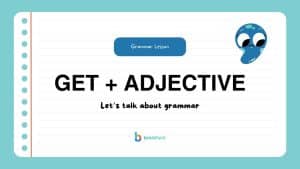Irregular verbs 5
En esta 5ª página: dwell, eat, fall, feed, feel, fight, find, fit, flee, fling.
*Recordad que podéis escuchar la pronunciación el los Play de la web: http://www.shertonenglish.com/resources/es/irregular-verbs/irregular-verbs-05.php
 |
 |
 |
 |
 |
| to dwell | to eat | to fall | to feed | to feel |
 |
 |
 |
 |
 |
| to fight | to find | to fit | to flee | to fling |
| Present | Past | P. Participle | Traducción |
|---|---|---|---|
| dwell (duél) |
dwelt (duélt) |
dwelt (duélt) |
habitar, morar |
| eat (íit) |
ate (éit) |
eaten (íiten) |
comer |
| fall (fol) |
fell (fel) |
fallen (fólen) |
caer, caerse |
| feed (fíid) |
fed (fed) |
fed (fed) |
alimentar/se, dar de comer |
| feel (fíil) |
felt (felt) |
felt (felt) |
sentir/se, palpar, tocar |
| fight (fáit) |
fought (fot) |
fought (fot) |
pelear, combatir |
| find (fáund) |
found (fáund) |
found (fáund) |
encontrar |
| fit (fit) |
fit* (fit) |
fit* (fit) |
encajar, quedar bien, instalar |
| flee (flíi) |
fled (fled) |
fled (fled) |
huir, huir de |
| fling (fling) |
flung (flang) |
flung (flang) |
echar, arrojar |
| Present: |
dwell (duél)
|
|
|---|---|---|
| Past: | dwelt (duélt) | |
| Past Participl: | dwelt (duélt) | |
| Translation: | habitar, morar | |
| That family used to dwell in a cottage beyond the river. Esa familia solía morar en una casita de campo más allá del río. |
||
| When he was a boy, he dwelt with Alaskan Indians. Cuando él era un muchacho, moró con indios de Alaska. |
||
| Prehistoric man dwelt in caves. El hombre prehistórico moraba en cuevas. |
||
| Present: |
eat (íit)
|
|
|---|---|---|
| Past: | ate (éit) | |
| Past Participle: | eaten (íiten) | |
| Translation: | comer | |
| Laura is a vegetarian so she doesn’t eat meat. Laura es una vegetariana entonces ella no come la carne. |
||
| I was so hungry that I ate everything I found in the fridge. Yo estaba tan hambriento que comí todo que encontré en la nevera. |
||
| We’ve eaten so much that we won’t have dinner. Hemos comido tanto que no cenaremos. |
||
| Present: |
fall (fol)
|
|
|---|---|---|
| Past: | fell (fel) | |
| Past Participle: | fallen (fólen) | |
| Translation: | caer, caerse | |
| The kid fell down and broke his leg. El niño se cayó y rompió la pierna. |
||
| With the coming of autumn, leaves are starting to fall. Con la llegada del otoño, las hojas están comenzando a caerse. |
||
| The temperature has fallen sharply. La temperatura ha caído bruscamente. |
||
| Present: |
feed (fíid)
|
|
|---|---|---|
| Past: | fed (fed) | |
| Past Participle: | fed (fed) | |
| Translation: | alimentar/se, dar de comer | |
| I haven’t fed the cat yet. No he alimentado al gato aún. |
||
| My baby is too young to feed himself. Mi bebé es demasiado joven para alimentarse solo. |
||
| The farmer fed the horses before going out to the field. El agricultor alimentó a los caballos antes de salir al campo. |
||
| Present: |
feel (fíil)
|
|
|---|---|---|
| Past: | felt (felt) | |
| Past Participle: | felt (felt) | |
| Translation: | sentir/se, palpar, tocar | |
| If you take some aspirin, you’ll feel better. Si te tomas alguna aspirina, te sentirás mejor. |
||
| Susan felt very sad when her cat died. Susan se sintió muy triste cuando murió su gato. |
||
| Feel this feather pillow! It’s really soft. ¡Palpe esta almohada de pluma! Es realmente suave. |
||
| Present: |
fight (fáit)
|
|
|---|---|---|
| Past: | fought (fot) | |
| Past Participle: | fought (fot) | |
| Translation: | pelear, combatir | |
| Two of my classmates are always fighting. Dos de mis compañeros de clase siempre luchan. |
||
| My grandfather fought in World War II. Mi abuelo luchó en la Segunda Guerra Mundial. |
||
| Steps should be taken to fight poverty. Las medidas deberían ser tomadas para luchar contra la pobreza. |
||
| Present: |
find (fáund)
|
|
|---|---|---|
| Past: | found (fáund) | |
| Past Participle: | found (fáund) | |
| Translation: | encontrar | |
| I can’t find my wallet. Have you seen it? No puedo encontrar mi cartera. ¿La has visto? |
||
| A dead whale was found on the shore. Una ballena muerta fue encontrada en la orilla. |
||
| Have you found your glasses? ¿Has encontrado tus gafas? |
||
| Present: |
fit (fit)
|
|
|---|---|---|
| Past: | fit* (fit) | |
| Past Participle: | fit* (fit) | |
| Translation: | encajar, quedar bien, instalar | |
| David tried the blue suit on, but it didn’t fit him. David se probó el traje azul, pero esto no le quedó bien. |
||
| This key doesn’t fit the lock. Esta llave no encaja en la cerradura. |
||
| All the rooms in this company are fitted with sprinklers. Todos los cuartos en esta compañía están instalados con aspersores. |
||
| Present: |
flee (flíi)
|
|
|---|---|---|
| Past: | fled (fled) | |
| Past Participle: | fled (fled) | |
| Translation: | huir, huir de | |
| The Jacksons fled to the U.S. when the war broke out. Los Jackson huyeron a los Estados Unidos cuando la estalló la guerra. |
||
| When the police arrived, the driver had already fled the scene of the accident. Cuando llegó la policía, el conductor ya había huido de la escena del accidente. |
||
| The fugitive was caught by border guards while trying to flee the country. El fugitivo fue agarrado por guardias fronterizos cuanto estaba tratando de huir del país. |
||
| Present: |
fling (fling)
|
|
|---|---|---|
| Past: | flung (flang) | |
| Past Participle: | flung (flang) | |
| Translation: | echar, arrojar | |
| As Peter arrives from work, he always flings his overcoat onto the sofa. Cuando Peter llega del trabajo, siempre arroja su sobretodo en el sofá. |
||
| The kids flung themselves onto the bed and turned on the TV. Los niños se arrojaron en la cama y encendieron la TV. |
||
| The door was suddenly flung open by the wind. La puerta fue de repente arrojada abierta (abierta violentamente) por el viento. |
||
* Se puede conjugar también como un verbo regular (terminación “ed”)
http://www.shertonenglish.com/resources/es/irregular-verbs/irregular-verbs-05.php











Los comentarios están cerrados